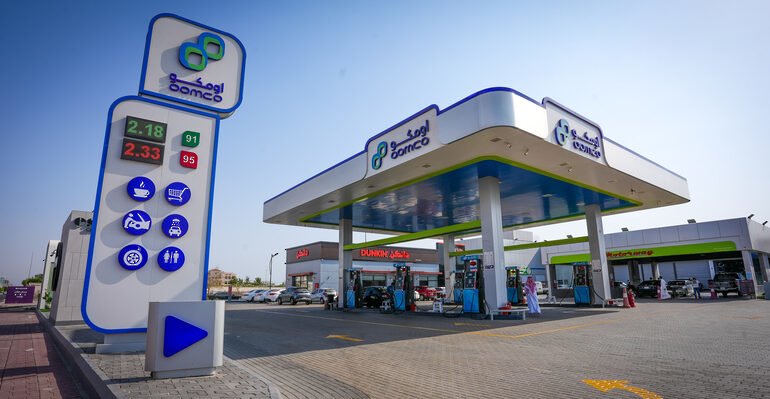
In line with Oman’s commitment to achieving zero carbon neutrality by 2050, the Ministry of Commerce, Industry, and Investment Promotion issued a Ministerial Resolution this week making it mandatory for all fuel stations in Oman to install electric vehicle (EV) charging points.
This decision underscores Oman’s dedication to environmental sustainability, with a primary objective of enhancing services to align with the country’s economic status while elevating the quality of fuel stations to provide comprehensive services to consumers.
The decision also imposes an obligation on fuel marketing companies to ensure that all fuel filling stations offer essential public amenities, including restrooms and other fundamental services. It further requires cleanliness at these facilities during the station’s operational hours.
In the event of non-compliance, the decision outlines a penalty structure. Initial offenders will receive a written warning, followed by an administrative fine of OMR 1,000 for repeated violations. For persistent non-compliance, the fine increases to OMR 3,000.
Notably, the government recently disclosed that Oman boasts more than 400 EVs, and there are ongoing efforts to expand the charging infrastructure in the country, which currently stands at 100 charging points.
The Ministry of Transport, Communications, and Information Technology for Transport has also announced plans to manufacture electric cars within the Special Economic Zone in Duqm.
As of the end of 2022, the number of fuel filling stations across various governorates in the Sultanate of Oman stood at 676. The Ministry of Commerce, Industry, and Investment Promotion continues its inspection campaigns of these stations to ensure the provision of top-notch services that contribute to reflecting the economic and tourism status of Oman across its various governorates.
It’s important to note that the regulations for issuing licences to establish and operate fuel filling stations, as per Ministerial Decision No. 69/2009, emphasise the importance of providing air filling devices, car washing facilities, food stores, and other services.
For new fuel filling stations situated on highways, these projects must incorporate “integrated stations” that include essential public amenities such as prayer rooms with restrooms for both males and females, a commercial building housing a restaurant or café, a store, public restrooms, and a pharmacy.
Fuel filling stations should also encompass a car wash, an information office, primary mechanical services, parking for both cars and trucks, designated parking for services and activities at the station, and accommodations for disabled individuals.